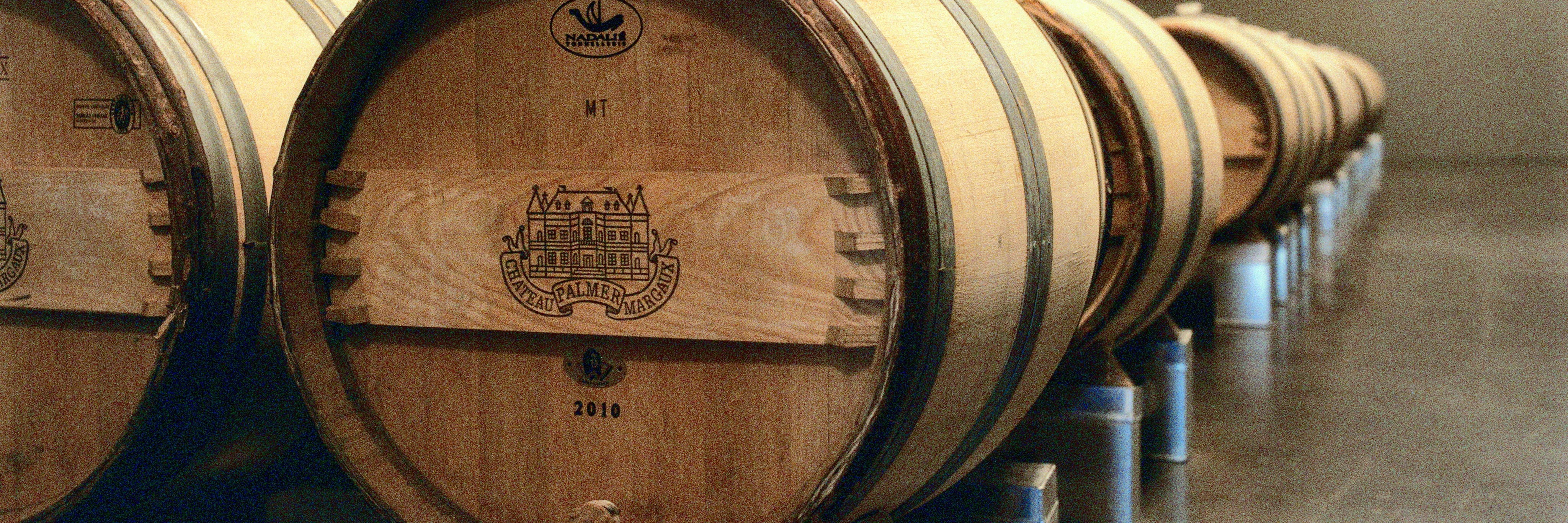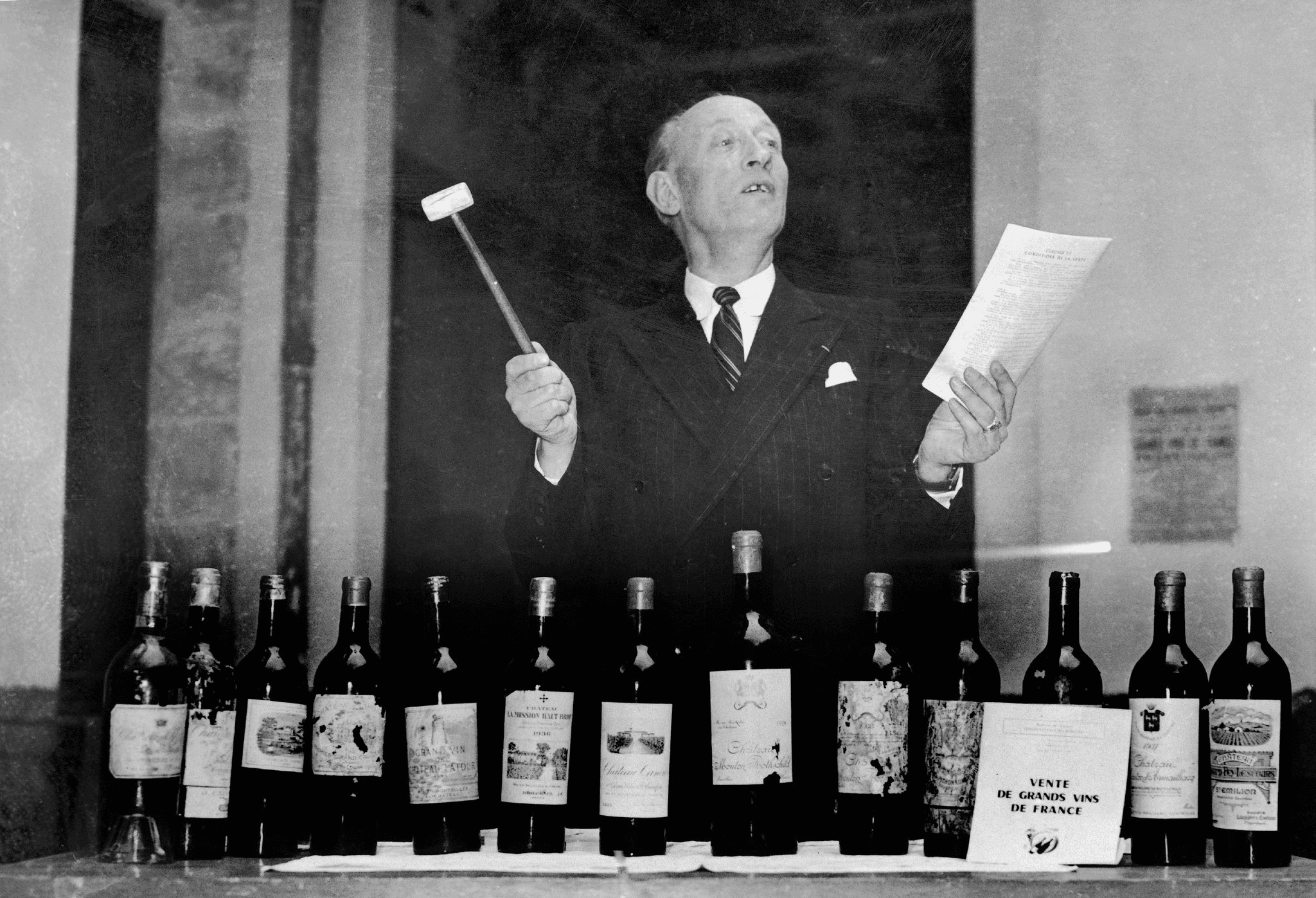
For those unfamiliar with the concept, it may come as a surprise to learn that people have been investing in fine wine for hundreds of years.
As early as 1787, American statesman Thomas Jefferson noted in his diary that a premium was being charged for Bordeaux wines from the more mature 1783 vintage versus the more recent 1786.
The lesson here – that fine wine improves with age, and will therefore be worth more in the future than it is today – remains the cornerstone of wine investing.
Since Jefferson’s time, investing in wine has become an increasingly mainstream pursuit for investors seeking uncorrelated, attractive risk-adjusted returns.
This trend shows no sign of slowing, with HSBC reporting in 2023 that 96% of UK wealth managers expect allocations to fine wine to increase.
Liquid Gold
When compared to other collectables, fine wine has two unique characteristics that make it stand out.
Firstly, unlike other collectables, there exists an objective, third-party price readily available through platforms such as Liv-ex.
Not only does this allow investors to ensure they are receiving a fair price, but it also allows for extensive quantitative analysis and modelling by professional wine investment businesses like WineFi.
This is in stark contrast to more opaque markets like art, whisky or classic cars, where investors are – to a greater or lesser extent – at the mercy of their broker’s valuation.
Secondly, wine’s status as a consumable ensures the existence of a unique supply-demand dynamic. There are a limited number of “blue chip” producers across a handful of top wine regions.
Only a finite number of bottles can be produced by each winery every year, the quality of which varies from vintage to vintage.
As the wines improve with age and bottles are consumed or damaged, they become
increasingly scarce. At the same time, as global wealth increases, so too does demand
for high-end wine.
This combination of ever increasing scarcity and growing demand helps to drive prices higher.
By The Numbers
Looking at the data, growing enthusiasm amongst wealth managers for investment-grade wine as a part of a broader portfolio is understandable.
Since 2004, the Liv-ex 1000 – the broadest measure of the investment-grade wine market – has returned 300%, delivering equity-like returns with a fraction of the volatility.

On a risk-adjusted returns basis, fine wine also compares favourably to more established asset classes. This is demonstrated by a higher Sharpe Ratio (shown below), which is a measure of the
average return of an asset in excess of the risk-free rate and relative to its volatility.

This characteristic stems both from fine wine’s favourable supply-demand dynamic, and the fact that it is – ironically – an illiquid asset. This means that it can take considerably longer to sell down a wine portfolio than, say, an equity portfolio.
Whilst this latter point can be a drawback if investors need to release cash quickly, it does mean that the asset class is protected from panic selling in the event of a broader economic downturn.
This is reflected in fine wine’s volatility profile, even during periods of market turbulence as was the case in 2023/24.

Uncorrelated Returns
Perhaps most fascinating, fine wine is uncorrelated to the performance of traditional asset classes, making it an attractive diversifier within a wider portfolio.
The correlation matrix below shows that wine shows almost no correlation to mainstream equity indices, bonds, commodities or gold.

Tax Treatment
A final consideration for investors is that, in many circumstances, returns from fine wine are exempt from Capital Gains Tax (CGT) in certain jurisdictions, including the UK.
Investors should be careful to do their own research to understand the tax treatment of fine wine in their locality.
Enjoyed the article? Spread the news!
Read More

Wine Investing
15 Jan 2026
WineFi Q4 2025 Quarterly Report
Introduction
We’re extremely excited to share our quarterly wine market report - delivering the most detailed view of the wine markets through Q4 2025. This is a pivotal report, as Q4 saw a continuation of the positive market momentum first observed in Q3.
The WineFi Trade Price Index recorded its second consecutive quarter of growth - a trend we have not seen in over three years.

Wine Investing
14 Jan 2026
What Is En Primeur?
What Is En Primeur?
En primeur refers to the practice of buying wine before it has been bottled, while it is still ageing in barrel. Buyers commit capital today for wine that will only be delivered 12 to 24 months later, based on early tastings, critic assessments, and the reputation of the producer and vintage.
The system is most closely associated with Bordeaux, where it has operated at scale for decades, though variations exist in Burgundy, the Rhône and parts of Italy. While en primeur is often discussed as an investment opportunity, at its core it is simply a forward market for wine, a mechanism that allows wine to be priced and sold before it physically exists.
Whether that forward price represents value is the more important question.

Why En Primeur Developed
En primeur did not begin as an investment strategy. It emerged as a practical solution to a structural problem, cash flow.
Selling wine early allowed châteaux to finance operations, manage working capital, and reduce balance sheet risk. Merchants assumed the price risk and inventory burden, while buyers gained earlier access to sought after wines, occasionally at a discount for committing capital in advance.
As the market evolved, several shifts changed the character of the system. The introduction of standardised critic scoring created globally legible price signals. Demand became increasingly international, particularly from the US and Asia. Prices began to move well before wines were bottled, shipped, or consumed.
At that point, en primeur stopped being purely about financing production and became a mechanism for setting expectations.
How En Primeur Works in Practice
After harvest, wines enter barrel and remain there for up to two years. The following spring, critics and merchants taste unfinished samples during the annual en primeur tastings. Based on these assessments, châteaux release wines at a set price, typically in tranches, with volumes allocated to merchants.
Buyers who participate commit capital at this stage. Delivery takes place once the wine has been bottled and released, usually 12 to 24 months later.
During this period, buyers do not hold a liquid asset. They hold a claim on future delivery. That distinction is important, particularly from an investment perspective.
The Investment Case for En Primeur
When en primeur has worked well historically, it has done so for structural rather than speculative reasons.
The strongest performers tend to be wines with sufficient production to trade regularly, deep and established secondary markets, and release pricing that leaves room for appreciation once the wine becomes physical. In these cases, en primeur can provide access to wine at prices below long term fair value, particularly in undervalued vintages or periods of rising demand.
However, these conditions are not consistent. They depend heavily on pricing discipline at release and broader market sentiment.

Where En Primeur Often Falls Short
A common assumption is that buying early means buying cheaply. In practice, this is frequently untrue.
In recent years, many châteaux have priced wines to reflect anticipated future appreciation, rather than current market conditions. This shifts a significant portion of the upside from buyers to sellers and leaves little margin for error.
As a result, it has become increasingly common for wines to trade on the secondary market at or below their en primeur release price once they are physically available. This is not necessarily a failure of the wine itself, but a function of forward pricing in a market where sellers retain considerable influence.
Capital Lock Up and Opportunity Cost
Beyond price risk, en primeur carries meaningful capital considerations. Funds are committed for an extended period, with no yield and limited liquidity. Exit options prior to physical release are constrained, and pricing during this phase is highly sensitive to shifts in sentiment, macro conditions, and revised quality assessments.
These factors are often underemphasised in en primeur marketing, but they play a significant role in determining whether participation makes sense from a portfolio perspective.

En Primeur Versus the Physical Market
The key difference between en primeur and buying physical wine is timing.
En primeur requires investors to assume risk before information is complete. The physical market, by contrast, prices wine after quality has been realised, supply is known, and trading patterns are established.
Neither approach is inherently superior. They simply involve different risk profiles. The mistake is treating them as interchangeable.
How WineFi Approaches En Primeur
At WineFi, we do not treat en primeur as the default entry point for fine wine investment. We view it as situational.
Participation only makes sense when release prices sit clearly below observable fair value, liquidity pathways are well established, and the opportunity cost of capital is justified. In many cases, the secondary market offers more attractive risk adjusted entry points with greater flexibility and fewer assumptions.
En primeur is not where returns are automatically generated. It is where pricing errors occasionally occur.
Closing Thoughts
En primeur remains an important part of the fine wine market. It is not obsolete, nor is it inherently advantageous.
Used selectively and with discipline, it can play a role. Used reflexively, it often disappoints. Understanding en primeur, therefore, is less about learning how to buy early and more about knowing when waiting is the better decision.
That distinction is where long term outcomes are shaped.

Wine Investing
Wine Basics
14 Jan 2026
Who Is Robert Parker and Why He Matters
Robert Parker is an American wine critic best known as the founder of The Wine Advocate. Since the late 1970s, his writing and scoring have played a significant role in shaping how fine wine is evaluated, priced and traded, particularly at the upper end of the market.
For many investors and collectors, Parker’s influence is most visible through numbers. His use of the 100 point scoring system helped make wine quality easier to compare across producers, regions and vintages. Over time, those scores became embedded in the mechanics of the fine wine market itself.
Understanding Parker’s role is therefore less about personal taste and more about market structure.
The Wine Advocate and the Rise of Scoring
The Wine Advocate was launched in 1978 as an independent publication, initially focused on Bordeaux. At the time, much of wine criticism was opaque, relationship driven and difficult for international buyers to interpret.
Parker took a different approach. Wines were scored numerically and reviewed with a clear point of view. A single score could be read, understood and acted upon by buyers anywhere in the world.
This mattered because it reduced friction. Buyers no longer needed deep regional knowledge or direct access to merchants to form a view on quality. A score became a portable signal.
As the publication’s readership grew, so did the market’s sensitivity to those scores.
Parker’s Influence by Region
Parker’s impact was not uniform across the wine world.
He was particularly influential in Bordeaux, where en primeur pricing became closely tied to his early assessments. High scores often translated directly into higher release prices and stronger early secondary market demand.
His influence also extended into the Rhône, where he played a major role in elevating the global profile of producers such as Châteauneuf du Pape and Hermitage, and into parts of California, where his preferences aligned with richer, more powerful styles during the 1990s and early 2000s.
In regions where production volumes were sufficient to support secondary market trading, Parker’s scores became especially powerful price signals.

Parkerisation and Style Drift
As Parker’s influence grew, a phenomenon emerged that became known as Parkerisation.
Producers, consciously or not, began adjusting winemaking styles to appeal to the palate that appeared to score well. This often meant riper fruit, higher alcohol, more extraction and more new oak.
In some regions, this led to a degree of stylistic convergence. Wines became more homogeneous, at least at the top end of the market, as producers competed for critical recognition and the pricing power that came with it.
While this increased short term demand and visibility, it also sparked debate around diversity, regional identity and long term drinkability.
Parker and Other Critics
Parker did not invent numerical scoring, nor does he operate in isolation today.
Other critics and publications, including Wine Spectator, James Suckling, Vinous, Wine Enthusiast and Jancis Robinson, also use structured scoring systems, often on similar scales. Each has developed influence in different regions and market segments.
The key distinction is not the existence of scores, but how markets respond to them. Some critics have a measurable impact on price formation in certain regions. Others primarily influence consumer sentiment or short term demand.
The market has learned to differentiate.
Scores, Prices and the Price Per Point Effect
As scoring systems became embedded in the market, prices began to anchor not just to quality, but to quality relative to price.
One way this shows up is through price per point ratios. Two wines may receive the same score, but trade at very different prices. Conversely, some wines command significantly higher prices for relatively small differences in score.
This matters because scores are not linear in their economic impact. The difference between 94 and 96 points can have a disproportionate effect on demand and pricing, particularly in regions where critical opinion strongly influences buying behaviour.
Over time, markets tend to normalise these relationships. Wines that are expensive relative to their score often struggle to outperform unless scarcity or brand power compensates. Wines that offer strong scores relative to price tend to see more consistent demand and, in some cases, stronger price appreciation.
Understanding this dynamic is more useful than focusing on scores in isolation.
How Scores Behave Over Time
One important feature of critical opinion is that it evolves.
Wines are often rescored after bottling, and again after several years of ageing. Initial en primeur scores may be revised up or down as wines develop, and these revisions can influence price performance, particularly in the early years of a wine’s life.
However, the impact of rescoring varies by region and by critic. In some markets, early scores dominate pricing behaviour. In others, long term trading history matters more.
How WineFi Uses Critic Scores
At WineFi, critic scores are treated as inputs, not conclusions.
Our quantitative models incorporate both initial scores and subsequent rescores, but they are weighted based on observed influence on price performance within a given region. Critics are therefore weighted differently depending on where their opinions historically move prices.
We also analyse how scores relate to price through metrics such as price per point, allowing us to identify wines that are priced efficiently, aggressively, or attractively relative to their critical reception.
Scores are contextualised alongside liquidity, trading frequency, production scale and long term price data. No single score, or critic, determines an investment decision.
Closing Thoughts
Robert Parker’s significance lies in how he helped standardise the communication of quality at a global level.
By making wine easier to compare, he contributed to the development of deeper secondary markets and more transparent pricing. His influence also shaped production decisions and market dynamics, particularly in regions where trading activity was already emerging.
Today, Parker is one voice among many. His legacy, however, remains embedded in how fine wine is priced, traded and understood.
For investors, understanding that legacy is less about following scores and more about understanding how scores interact with price, liquidity and time.

